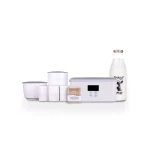Hypothyroidism symptoms could actually be indicators of low bioavailable copper? I regularly see connections between hypothyroid and copper levels among our consumers – do any of the indicators reflect your experience?
Below are additional indicators of copper dysregulation:
Pimples, mood swings, graying hair, insomnia and nervousness – are just a few symptoms associated with poor eyesight that continue to cause continuous problems for sufferers.
Ideas racing
At 1:1 we often encounter this combination of indicators in clients that are trying to shed unwanted fat while experiencing discomfort at their core. If this sounds similar to you, please continue learning!
Let’s first consider the significance of vitamin A and its function in producing bio-available copper…
Why does Vitamin A (retinol) matter so much? Cliff’s Notes: Your liver excretes copper into your system; Vitamin A can rework that copper back to bio-available form via ceruloplasmin production using its unique bioavailability as the only method.
Vitamin A (retinol) can only be found in animal-sourced foods like fish, liver, eggs, raw dairy products such as cheese and butter.
FYI: Animal products contain different varieties of vitamin A than found in plants; thus consuming animal-sourced items often is vital to overall wellbeing as well as to supporting T4-T3 conversion in my thyroid patients!
Rosita Cod Liver Oil and PaleoValley Organ Difficult are my go-to choices to meet my vitamin A, copper and B dietary nutritional supplement requirements! Plus more!
Discover ways to increase bioavailable copper:
Eating additional meals rich in retinol such as those mentioned earlier (retinoids are discussed further above); as well as copper-rich ones like oysters, shellfish, whitefish, bee pollen mushrooms organ meats etc can all increase bio-availability copper levels significantly.
Eat plenty of vitamin C-rich food sources such as citrus fruits, papayas, bell peppers and strawberries for optimal nutrition. FYI: Vitamin C helps support tyrosinase activity which in turn allows the liver to produce bioavailable copper stores in its tissues.
Last, take steps to avoid factors that deplete copper levels such as GMOs, ascorbic acid, high fructose corn syrup (HFCS), glyphosate herbicide use and stress, diuretics and pain killers which deplete copper as well as any additional iron, calcium zinc and vitamin D supplements taken for health issues.
Are You Suffering From These Signs of Mineral Imbalance? We Can Help! The Hair Check Mineral Analysis (HTMA) allows us to give insight into their mineral status.









